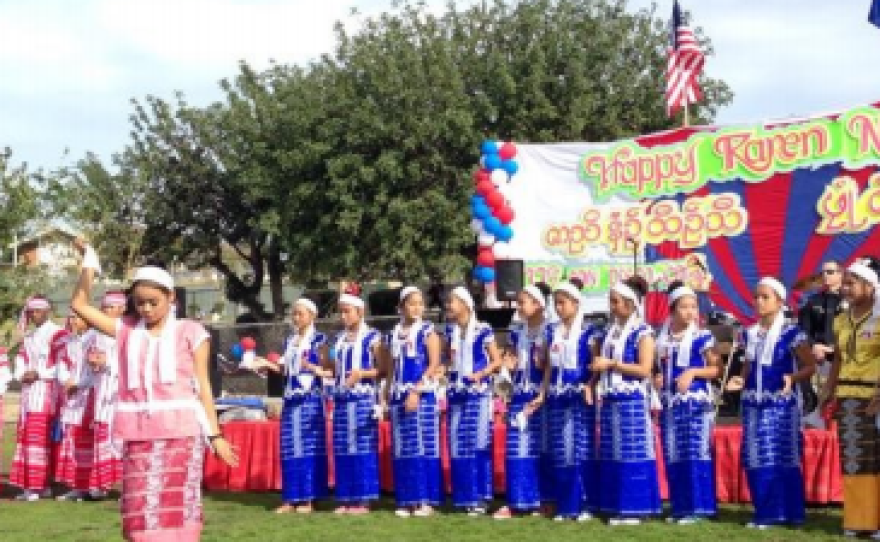Refugees from a Burmese ethnic minority group gathered in San Diego this weekend for a new year's celebration. It also gave them a chance to discuss the news from their home country.
About 2,000 Karen refugees have moved to San Diego since 2007, and most live in City Heights, said Nao Kabashima, director of the Karen Organization of San Diego.
Members of the Karen ethnic minority have battled in a civil war against Myanmar for more than 60 years, but in October the two sides signed a ceasefire agreement.
Kabashima said that development and other news from home are focuses of conversations at Karen gatherings.
"They talk about it every day," she said. "They are here in America, they want to be productive, great community members of the United States, but at the same time they really care about their own state and people who still live over there."
Peace agreements between Karen state and Myanmar have happened before, leaving some skeptical it will last.
Kabashima said the Karen Organization of San Diego is not political and is focused on helping refugees build lives in their new home.
"We're just focused on what's going on here in the United States, how to have a better life and be more productive members of the community here," she said.
The Karen Organization of San Diego also put on the Karen New Year celebration on Saturday, which featured dancing, songs, food and a fashion show.
"In the Karen state of Burma, this is the most important celebration of the year, and so this is meant to preserve the traditions and culture inherited from Karen ancestors," Kabashima said.






